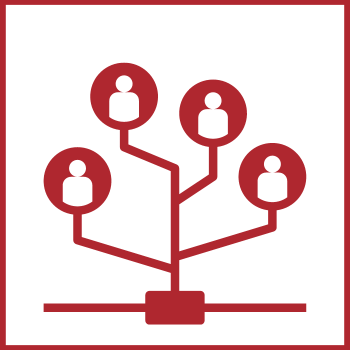Are you using social media in the best way?
Written by Stefanie J. Redmond, Xero
If someone were to search for you online right now, what would they find? When is the last time you checked? Now is the time to look.
When people search for you online, what they find will form their opinion of you. Keeping your profiles active and updated is your opportunity to put your best face forward and manage the reputation that people will see of you. It will also help you stand out in the crowd. It’s time to shift your focus to building yourself as a professional.
Being successful online isn’t the same as being popular. The number of followers you have is less important than the quality of your network. Think about where you’d like to take your career and use your social profiles to help you get there. The key when posting online is to keep in mind who is looking at your profiles. 70% of employers use social media to screen candidates before hiring. You don’t want to disqualify yourself from an opportunity before you’ve been given a chance.
Start by cleaning house
Go back through your profiles – all the way back – and look at your profiles from the eyes of your future boss or clients. If it is no longer appropriate, or could be damaging for your future career, then take it down or make it private. Decide what is personal versus professional and update your profile security settings accordingly.
What are people looking for?
- Inappropriate screen names or email addresses
- Unprofessional critiques of previous employers or co-workers
- Unnecessarily critical reviews you’ve left of other companies and brands
- Out of date, missing, or contradictory personal information
If your job requires you to use your social media for professional purposes, consider if it makes sense to create an entirely separate profile. Will you need to join any groups from your personal page? Make sure to update your privacy settings, and turn on timeline tagging: every time someone tags you in a photo, you have to approve it before it’s visible on your timeline.
Regardless of your career path, you want to ensure you have an online presence. 57% of employers are less likely to interview someone they can’t find online. If you’re not online, it can send the message that you’re hiding something. Employers want to know you exist and that you know how to use technology.
At a minimum, you should have an updated LinkedIn page. It’s much more than your digital resume, it’s an easy way to expand your digital network by asking contacts for introductions and referrals. We already assume that the people who are on LinkedIn are professionals, so don’t be afraid to insert your personality. The photos, videos, and articles you share or write are the details that will help you stand apart.
Understand the audience and focus of each of your social networks. Each platform has its own benefits, so use the ones which make sense for you. Keep the messaging across profiles consistent, and if you update one profile’s information, be sure to update them all.
Think about what you’re posting online
Your social profiles should be a reflection of your personality. You don't have to spend hours a day maintaining your online presence. Choose a timeframe that works for you and stick to it - even if it's one post a week.
A good rule of thumb when posting online is the Rule of Thirds - Give/Get/Real
- ⅓ Give
- Any time you’re adding value to your audience, without receiving something in return.
- A good example would be sharing an article that is relevant to your audience.
- ⅓ Get
- Any time you are asking your audience to take an action that you benefit from.
- An example of this would be asking your followers to read an article that you wrote.
- ⅓ Real
- This is where you show off your personality and give your profiles life.
- Social media is meant to be social, so sharing your authentic self will help you connect with your audience.
Imagine you’re “meeting the parents” for the first time. You would be very conscious of the topics you discussed. While you may have strong views, you would tread lightly on topics like politics, religion and sex. Those conversations can get heated, so you would avoid bringing them up. The same thing applies online. If you wouldn’t talk about it in front of the parents, don’t talk about it online. That doesn’t mean you shouldn’t stay true to yourself, but always keep the tone of what you write in line with all of your audiences.
Leverage technology
Affordable technology exists to help you maximize the use of your social platforms, while minimizing your time involvement.
- Schedule your posts ahead of time. Some social platforms will help you schedule your posts to go out in the future. If it’s not natively built into the platform, social profiles can be synced to scheduling tools like Buffer or Hootsuite.
- Add graphics. You don’t have to be a graphic designer to quickly and easily create interesting visuals to your posts. Using tools like canva.com or PicMonkey make it simple to edit and add photos to any post.
- Caption your videos. Most social platforms will auto-play videos with the sound off. In order for viewers to follow along with your video, it’s helpful to add captions. Rev.com will caption your videos for $1/minute.
- Shorten your links. URL shorteners such as bit.ly and TinyURL take long messy links and reduce them into tidy, abbreviated versions.
There are many right and wrong ways to be active on social media. To stay competitive in this digital era it’s imperative to have an online presence, and it’s up to you to ensure you’re putting your best face forward.
Hear what our Professional Partners think about BAP!
Joining Beta Alpha Psi as a professional has significantly bolstered both personal and organizational growth by enabling us to engage with top emerging talents in accounting and finance. These interactions not only broaden our perspectives but also contribute to our firm's adaptive solutions and commitment to mentorship.
Leanne Lutkus
Regional Recruiting Senior Manager
Moss Adams










